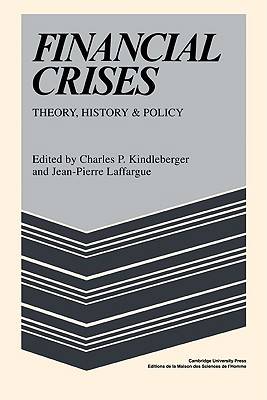
- Afhalen na 1 uur in een winkel met voorraad
- Gratis thuislevering in België vanaf € 30
- Ruim aanbod met 7 miljoen producten
- Afhalen na 1 uur in een winkel met voorraad
- Gratis thuislevering in België vanaf € 30
- Ruim aanbod met 7 miljoen producten
Zoeken
Omschrijving
What can or should be done to ward off or alleviate the effect of financial crises? The papers in this book examine this question, focusing on particular crises, notably those of 1836, 1873, 1920 and 1929. Based on a historical consideration of the nature and propagation of financial crises, the major theoretical issues raised by the contributors centre on whether a financial system, of a nation or of the capitalist world as a whole, is fragile or robust. Although no precise definitions are agreed upon, financial crises are distinguished from crises of unemployment or crises of wartime devastation. The book is based on the papers and proceedings of a conference held in Bad Homberg, West Germany, in May 1979 under the auspices of the Maison de Science de I'Homme and with the support of the Werner-Reimers Stiftung.
Specificaties
Betrokkenen
- Auteur(s):
- Uitgeverij:
Inhoud
- Aantal bladzijden:
- 312
- Taal:
- Engels
- Reeks:
Eigenschappen
- Productcode (EAN):
- 9780521243803
- Verschijningsdatum:
- 30/07/1982
- Uitvoering:
- Hardcover
- Formaat:
- Genaaid
- Afmetingen:
- 152 mm x 229 mm
- Gewicht:
- 625 g

Alleen bij Standaard Boekhandel
+ 270 punten op je klantenkaart van Standaard Boekhandel
Beoordelingen
We publiceren alleen reviews die voldoen aan de voorwaarden voor reviews. Bekijk onze voorwaarden voor reviews.











